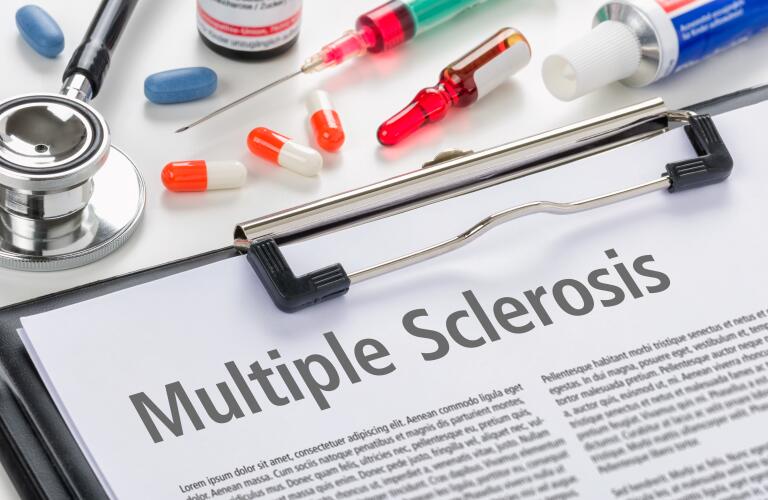
When patients are first diagnosed with multiple sclerosis (MS), many questions may come up. Will they be able to walk? Will they still be able to go to their favorite yoga class? It’s hard to know immediately after a diagnosis, but my best answer is this: it varies. I have one patient who has run a marathon in almost every state, and I have other patients who are wheelchair bound. Fortunately, with today’s MRI brain scans, we can see clues about the past duration and extent of your MS, even asymptomatic effects of the disease.
Multiple sclerosis is a neurodegenerative disease that can become progressive over time. The name of the disease describes what we see in an MRI of the brain: multiple, or many; and sclerosis, meaning scars. If the MRI results show a lot of lesions on your brain early on, that may signal a more severe prognosis.
Defining MS
MS is classified as an autoimmune disorder, which essentially means your immune system gets confused and starts attacking your own body. In MS, the immune system damages the covering around your nerves, called myelin. This damage causes a thinning or unwrapping of the myelin; this process is called demyelination. Nerves act like wires, transmitting messages throughout your body. When the myelin is stripped, your nerves can’t work as far or as long and can potentially die due to the damage.
MS can be categorized as either relapsing or progressive. Relapsing MS is typically milder; the symptoms will begin over a period of a few weeks, last a few weeks, and then gradually improve. Progressive MS comes on more slowly and may require more treatment options.
MS Symptoms
Because MS can affect several different areas of the brain, symptoms vary from patient to patient. A common first symptom is visual loss, which is caused by inflammation of the optic nerve. Another first sign of the disease (or a relapse) is numbness. Patients will report numbness or tingling that starts in their feet and creeps up to their stomach. Others report dizziness, imbalance, or loss of memory. The most common complaint, though, is extreme fatigue — kind of like the fatigue you get from having the flu. As of now, there isn’t a cure for MS; however, fortunately, there are several therapies that can improve or minimize symptoms.
Treatment options
The standard treatment for a person experiencing relapsing symptoms or a new symptom is a dose of steroids, as well as physical and occupational therapy to improve function. Steroids usually work best for MS patients when they’re administered intravenously.
There’s also a range of long-term therapies to minimize progressive MS and neurodegeneration. We’ve had injectable medicines since the early ‘90s, and more recently, three oral medicines and IV medication options have become available. Which medications are right for you depends on how asevere your disease is and how you respond to certain treatments.
For the first time in my 20 years of treating MS, there are acute treatment trials running that may repair nerves and help reduce inflammation — called remyelination. The hope is that this new treatment would improve nerve connections and therefore improve function in patients, which is really exciting news for MS treatment.
Relieving symptoms
It’s extremely important to do regular check-ups with your primary doctor to make sure your blood pressure, cholesterol and other conditions are staying in check. When coupled with another condition like diabetes or heart disease, MS symptoms can worsen. Beyond keeping up with your doctor and taking medications, physical activity can help relieve symptoms of MS. Yes, exercise is safe for individuals with MS, and we encourage doing everything you can to keep your body moving — whether it’s walking on the treadmill for 10 minutes at a time or just moving your arms and legs up and down if you’re in a wheelchair. In the right doses, exercise can actually help fight fatigue rather than cause it, and staying active seems to increase brain volume and improve memory.






